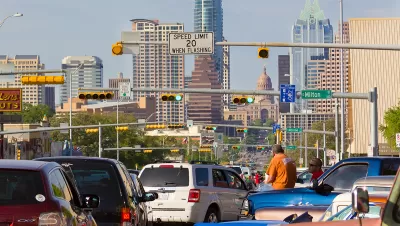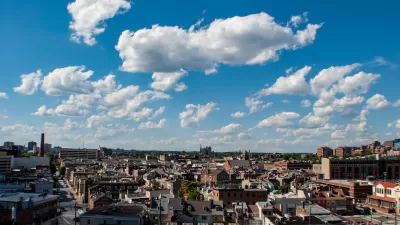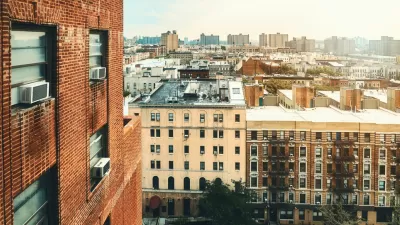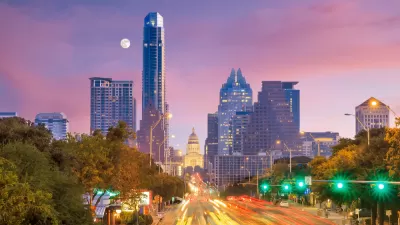The Texas capital, once one of the most affordable metro areas, is experiencing a housing affordability crisis as median prices soar and longtime residents face displacement.

Austin's burgeoning popularity is creating a crisis of affordability in the city's housing market, reports Edgar Sandoval. The Texas capital, which has seen explosive growth that shows no signs of stopping, "is on track to become by year’s end the least affordable major metro region for homebuyers outside of California," according to a Zillow forecast. As Sandoval writes, "With an average of 180 new residents moving to the city every day in 2020, housing inventory is very low, realtors said. Multiple offers, bidding wars and blocks-long lines outside open houses are commonplace."
The current median home price of $536,000 is almost $100,000 more than at the same time last year, and more than twice the median cost in 2011. Meanwhile, renters are feeling similar pressures, with an average apartment going for $1,600, a rise of 38 percent in the last ten years.
Previously one of the more affordable urban centers in the country, Austin now faces a housing crisis that is displacing longtime residents and pushing some into homelessness. The problem is so alarming that, earlier this year, the city hired a 'displacement officer' tasked with "preventing widespread gentrification even as cranes continue to dot the skyline and new structures climb ever higher." The office will receive $300 million over the next 13 years, which many say is not enough to address the growing crisis as more residents find themselves having to relocate to more remote parts of the city.
FULL STORY: How Austin Became One of the Least Affordable Cities in America

Maui's Vacation Rental Debate Turns Ugly
Verbal attacks, misinformation campaigns and fistfights plague a high-stakes debate to convert thousands of vacation rentals into long-term housing.

Planetizen Federal Action Tracker
A weekly monitor of how Trump’s orders and actions are impacting planners and planning in America.

In Urban Planning, AI Prompting Could be the New Design Thinking
Creativity has long been key to great urban design. What if we see AI as our new creative partner?

King County Supportive Housing Program Offers Hope for Unhoused Residents
The county is taking a ‘Housing First’ approach that prioritizes getting people into housing, then offering wraparound supportive services.

Researchers Use AI to Get Clearer Picture of US Housing
Analysts are using artificial intelligence to supercharge their research by allowing them to comb through data faster. Though these AI tools can be error prone, they save time and housing researchers are optimistic about the future.

Making Shared Micromobility More Inclusive
Cities and shared mobility system operators can do more to include people with disabilities in planning and operations, per a new report.
Urban Design for Planners 1: Software Tools
This six-course series explores essential urban design concepts using open source software and equips planners with the tools they need to participate fully in the urban design process.
Planning for Universal Design
Learn the tools for implementing Universal Design in planning regulations.
planning NEXT
Appalachian Highlands Housing Partners
Mpact (founded as Rail~Volution)
City of Camden Redevelopment Agency
City of Astoria
City of Portland
City of Laramie





























